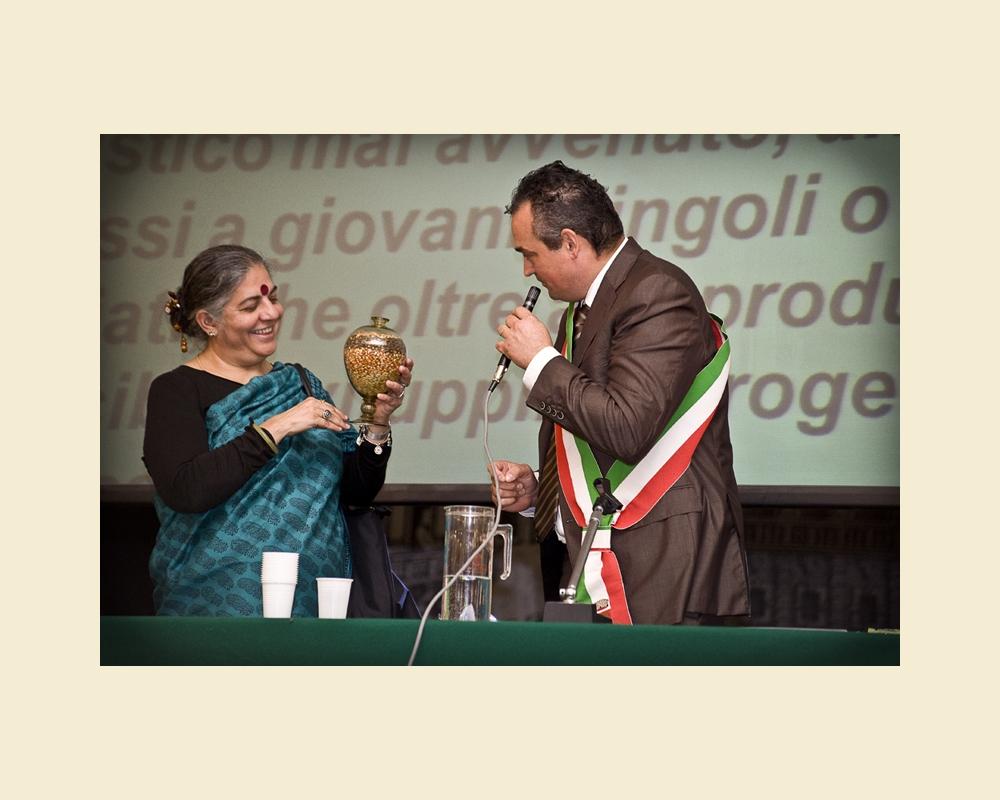Vandana Shiva immediately listened to and in tune with the cultural reflection and spirit of active citizenship proposed by El Tamiso on October 12. In the morning, at the Goldoni Theater in Bagnoli, he spoke after the speeches that testified to the desire to promote a different relationship with the territory starting from agriculture expressed both by cooperatives such as El Tamiso and Earth and Heaven, and by citizen initiatives such as the Blessed Builders of Peace and “Malles, a municipality free of pesticides”, and by local administrators. As evidenced by the video interview recorded in the early afternoon, Vandana Shiva was able to contextualize The Bagnoli Charter (and the previous Arcevia Papers) within the last three decades in which civil society has mobilized locally and globally to counter the logic of exploitation of land and people implemented by multinational agriculture and food companies. With great clarity (see clip 1) she recounted her motivations and aspects of her personal formation (see clip 4) that led her to promote biodiversity and respect for local cultures and cultures, both through study and personal testimony, both by promoting scientific and productive realities, and by supporting movements from below. In the afternoon, speaking in Padua (Fornace Carotta) both at the opening and closing, he emphasized the importance of collaboration between producers and consumers in building an economy based on sustainable relationships with the earth and between people, starting from the sharing of the construction of the price of products and deconstructing the colonial and sexist conditioning (see clip 3) that condition the approach to “resources” (see clip 2). Alongside human passion, Vandana Shiva offers in these clips, as she offered in her speeches on October 12 in Bagnoli and Padua, a lucid analysis of the mechanist and “developmental” ideology of the second half of the 20th century and launches a strong appeal both to safeguard and make biological and cultural diversity interact, and to unite the efforts of civil society and local authorities at events that offer a significant narrative of the world and of future challenges such as Expo 2015 and the International Year of Soils (2015): an invitation to weave from below the our capacity for the future.




